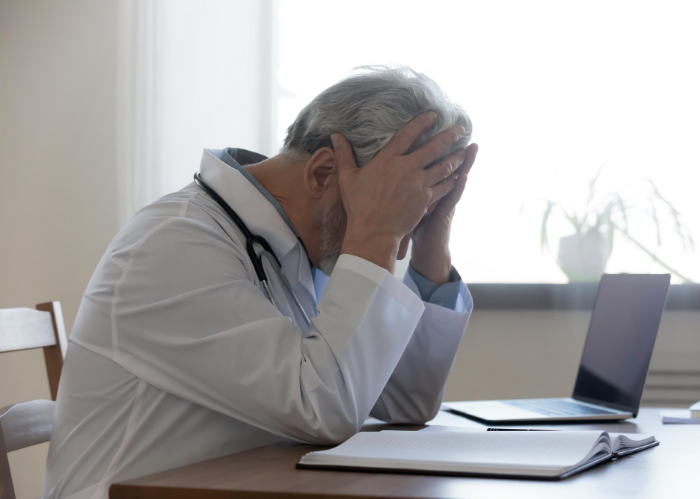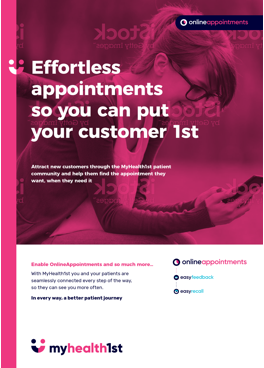
The COVID-19 pandemic has had as marked an effect on mental health in Australia as it has had on physical health. Two studies conducted in May (though yet to be peer reviewed) have indicated a massive rise in the instances of clinical depression, anxiety and other symptoms of stress.
One study showed a growth in people with clear symptoms of mental health issues rose between 13% and 21%. Another study, performed by a team at Monash university found that around one quarter of the 13,829 people that took part experienced clinically significant depression symptoms. A further quarter of the people surveyed showed mild to moderate signs of depression. Pre COVID-19, the typical rate of people experiencing severe symptoms of depression was around 3.7%.
This rise was not unexpected. COVID-19 and the subsequent lockdown were known to bring with them a number of factors with negative mental health consequences. Unemployment, financial uncertainty, social distancing, isolation, fear of infection and a constant bombardment of bad news may all contribute to this rise in negative mental health symptoms.
Mental Health in the Healthcare Sector
Healthcare professionals have been impacted as hard, and in some cases harder than the general public. In addition to the factors listed above, healthcare professionals have also proven to have to deal with increased fear and risk of infection as well as the pressure of being on the frontline during a pandemic, often without the needed support.
While instances of serious mental health issues haven’t risen markedly for healthcare professionals (from 3.1% to 3.3%), the levels of stress and mild to moderate mental health symptoms have risen . Around 60% of healthcare professionals - GPs and non-GP specialists alike - report more stress than usual.
This rise in stress levels may be attributed to the loss of income that is endemic among healthcare providers at the moment, as well as the added pressure of being on the frontline in the fight against COVID-19, potentially putting their lives in jeopardy as a result.
Another cause of this added stress appears to be the availability of affordable PPE. Healthcare practitioners as a whole reported to be satisfied with the levels of support they are receiving from fellow practitioners, local and state government as well as industry bodies. Almost half of all GPs surveyed in the MABEL COVID-19 SOS (Medicine in Australia: Balancing Employment and Life COVID-19 Short Online Survey) reported being moderately to extremely dissatisfied with the availability of PPE. Thirty two percent of specialists reported similar levels of dissatisfaction.
Some evidence also suggests that healthcare professionals are experiencing instances of Impostor Syndrome due to the pandemic. One leading theory is that a number of healthcare workers are being hailed as heroes on social media or in the press while, in many cases they can’t do much to help with the pandemic aside from delivering tests and advising people to self-isolate.
What Can Be Done?
One of the key indicators of prevalence of extreme stress in the healthcare community appears to be decreased revenue, especially when it leads to staff cuts or the need to apply for JobKeeper benefits. Another major stressor is the availability of affordable PPE for practitioners.
Embracing methods of connecting with patients remotely, such as implementing an effective telehealth technology, may be a way to help build practice income. Communicating that your practice is open and safe may help increase face-to-face bookings. Using email or SMS campaigns targeted towards existing patients may prompt people who have been putting off medical appointments to book.
Marketing need not be an expensive proposition. Making sure your website is good, informative and fast may help your practice be found when someone is searching for a doctor, and keeping your Google My Business profile up to date with easy to access information (like phone number and address) may also be of great use.
Most importantly, asking for the help you need is the most important step any healthcare professional can take at this time. Other practitioners, industry bodies and the government may be able to help, as can affiliated companies.
MyHealth1st has long been dedicated to helping patients and practitioners connect, allowing patients to get the healthcare they need, when they need it, and healthcare providers to increase the reach of their practice.
If you need help reaching patients, implementing telehealth, marketing your practice or want to access a pool of patients you may not have access to otherwise, don’t hesitate to get in touch, by emailing info@myhealth1st.com.au or calling 1300 266 517.
